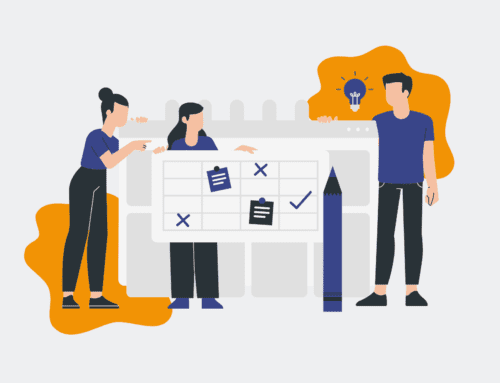Future-Proofing Your Recruitment Strategy with AI-Powered Skills Matching
In today’s dynamic talent landscape, traditional recruitment methods are proving increasingly insufficient. The sheer volume of applications, the nuanced interpretation of skills, and the rapid evolution of job roles create a perfect storm of inefficiency and missed opportunities. Business leaders often grapple with the hidden costs of poor hires, extended time-to-fill metrics, and the constant churn of talent that doesn’t quite fit. The challenge isn’t just about finding candidates; it’s about accurately matching skills and potential to the strategic needs of your organization, a task that demands a more sophisticated approach than keyword-based searches or subjective evaluations.
At 4Spot Consulting, we understand that true scalability and operational excellence hinge on eliminating bottlenecks, especially in critical areas like talent acquisition. This is precisely where AI-powered skills matching emerges not just as an innovative tool, but as a fundamental necessity for future-proofing your recruitment strategy. It’s about moving beyond the surface-level resume scan to a deeper, more analytical understanding of what a candidate truly brings to the table.
The Evolution of Skills Matching: Beyond Keywords
For years, recruitment technology relied heavily on keywords. A recruiter would input desired skills, and the system would sift through resumes, pulling those that contained the exact phrases. While functional, this approach often overlooked transferable skills, underestimated potential, and penalized candidates who might describe their capabilities using slightly different terminology. It’s a rigid system in a fluid world, leading to a high volume of irrelevant matches and, paradoxically, the exclusion of highly qualified individuals.
Modern AI, however, operates on a different plane. It leverages natural language processing (NLP) and machine learning algorithms to understand context, identify synonyms, infer related skills, and even predict future performance based on past data patterns. This means AI can identify a candidate whose experience in “project coordination” for software development translates perfectly to a “program management” role in a different industry, without requiring an exact keyword match. It shifts the focus from what a resume explicitly states to what a candidate implicitly possesses and can offer.
Unlocking Hidden Potential with Contextual AI
The real power of AI-powered skills matching lies in its ability to delve into the nuances of human experience. It can analyze projects, accomplishments, and even soft skills described in cover letters and professional profiles to create a holistic picture of a candidate’s capabilities. For instance, an AI system can discern that managing a complex client portfolio in a sales role demonstrates strong communication, negotiation, and problem-solving skills – attributes vital for a leadership position, even if “leader” isn’t explicitly listed as a past title. This contextual understanding enables organizations to:
- **Broaden their talent pool:** By identifying qualified candidates from diverse backgrounds and industries who might otherwise be overlooked.
- **Reduce unconscious bias:** AI algorithms, when properly designed and trained, can focus solely on objective skills and experience, minimizing human biases related to gender, age, or background that can inadvertently creep into traditional screening processes.
- **Improve candidate experience:** By quickly identifying relevant roles, AI can ensure candidates are presented with opportunities that genuinely align with their aspirations, leading to more engaged applicants.
- **Accelerate time-to-hire:** By automating the initial, time-consuming stages of skills assessment, recruiters can focus on qualitative evaluations and direct engagement with top prospects sooner.
Implementing AI for Strategic Advantage with 4Spot Consulting
Integrating AI-powered skills matching isn’t just about adopting new software; it’s about a strategic transformation of your recruitment operations. This requires a thoughtful approach, starting with a clear understanding of your current inefficiencies and desired outcomes. This is where 4Spot Consulting’s OpsMap™ diagnostic becomes invaluable. We don’t just recommend technology; we map out the specific pain points in your existing talent acquisition workflow and design bespoke AI and automation solutions that deliver measurable ROI.
Consider a scenario similar to an HR tech client we assisted: they were overwhelmed by manual resume intake and parsing. By deploying a tailored AI solution, integrated via Make.com and synced to their Keap CRM, we helped them save over 150 hours per month. This wasn’t just about speed; it was about accuracy, freeing up their high-value HR professionals to focus on candidate engagement and strategic talent initiatives, rather than data entry. The quote, “We went from drowning in manual work to having a system that just works,” perfectly encapsulates the impact of a strategically implemented AI solution.
Our approach ensures that AI isn’t simply a shiny new tool, but an integral part of an optimized “Single Source of Truth” system for your talent data. This allows for consistent, reliable, and actionable insights across your entire recruitment and HR ecosystem. From initial application to employee onboarding, AI-driven insights ensure that your team is making data-backed decisions at every turn, mitigating human error and drastically increasing scalability.
Building a Resilient Recruitment Future
The future of recruitment is not about replacing human recruiters with machines, but empowering them with intelligent tools that augment their capabilities. AI-powered skills matching allows your recruitment team to move from transactional screening to strategic talent advisory. It allows for proactive talent pooling, deeper insights into workforce gaps, and the ability to pivot rapidly in response to market changes.
By investing in these intelligent systems, you’re not just hiring for today’s needs; you’re building a resilient, adaptable recruitment function capable of identifying and nurturing the talent that will drive your business forward for years to come. It’s a proactive step towards ensuring your organization remains competitive, agile, and poised for sustained growth in an increasingly competitive global marketplace.
If you would like to read more, we recommend this article: The Future of AI in Business: A Comprehensive Guide to Strategic Implementation and Ethical Governance






